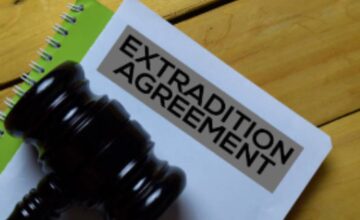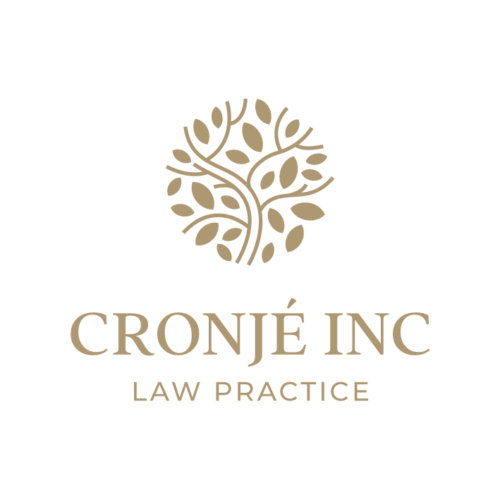By Jenaé Greeff, Reviewed by Helene Cronjé
The Business and Intellectual Property Authority (“BIPA”) of Namibia was established as the Centre for registration of business and industrial property to ensure economic growth for an innovative nation.
A business enterprise is, in terms of Namibian legislation, defined as a sole proprietor, partnership, a trust created for a business purpose, a company registered in terms of the Companies Act, 2004, a close corporation registered in terms of the Close Corporations Act, 1988, and includes an informal business establishment or any other body which owns one or more business enterprises. The following forms of business may be registered in Namibia: Sole Proprietorship, Close Corporation, Company (Private, Public, Section 21, NGOs and Foreign Companies). Other legal forms that may be used are Partnerships, Joint Ventures and Trading as.
A defensive name was regarded as the first step towards registering your business and is registered at BIPA for the purpose of protecting such name where the defender holds material interest in the name in the ordinary course of trade. The sole purpose of registering a defensive name was to prevent the registration of another entity with the same name or so nearly resembling it, that same would cause confusion among the public and consumers. The defensive name was protected for a period of two years with the possibility to renew the said name for another two-year period.
Let’s discuss the various business forms
The Sole Proprietorship has no registration requirements and owners used the defensive name to protect their name for trading purposes.
A Partnership is an extension of the Sole Proprietorship and is established by an agreement between the parties, each contributing either money, goods, skills or services. There are no registration requirements for a partnership in Namibia and the partners have in the past also used the registration of a defensive name to protect the name of their business in trading.
The Business Trust is based on a Trust Deed and is submitted to the Master of the High Court to issue the Trust Certificate. The trust name is protected by the Trust Deed of a Trust.
Close Corporations (also known as “CC”) are regulated by the Close Corporations Act 26 of 1988 and provides for a more flexible business entity for smaller enterprises. Close Corporations are cheaper to maintain and easier to manage. In a close corporation there is no separation between ownership and management, though it does have its own legal personality. A close corporation can also be converted into a company at a later stage when the smaller enterprise wishes to expand into a bigger business entity.
Companies are regulated by the Companies Act 28 of 2004 and is a business enterprise used for larger businesses. Companies have a separation between ownership and control and is a separate juristic person. In terms of the Companies Act, 2004, there are various forms of companies, however, the most common types of companies are public companies, private companies and Section 21 Companies (Non-Profit Companies).
On 14 October 2020, BIPA released a directive, which informed the public that as from 31 October 2020, BIPA will no longer allow the registration of a Defensive Name for the purpose of sole proprietorship or trading, but strictly for the purposes outlined in legislation, which makes provision for companies and close corporations only.
Many a business owner have since been advised to either convert their sole proprietor or Partnership into a business form recognized by BIPA, which is either a close corporation or company. For many business owners this has become a real headache and a costly process.
We would like to use this opportunity to advise all business owners, that this is not the only approach to be followed to protect the name of your business in the ordinary course of trade.
In the recent past, BIPA implemented an internal system which compares the company or close corporation names with the trade marks that have been recorded against the records at the Namibian Registry. When a company name resembles that of a trade mark, BIPA issues a rejection letter to the applicant of the company name stating that there is a similar trade mark. The implementation of this system ensures that there are no trade marks and business names which resembles each other, but does not have the same Holder.
For the business owners using the business form of either a Sole Proprietorship or Partnership, this provides a solution to the protection of the business name, without converting your current business form into a close corporation or a company as otherwise recommended.
What is a trade mark?
The best kind of trade mark is a registered one!
In Namibia, a trade mark is regulated by the Industrial Property Act of 2012 (as amended) and the registration of a trade mark is mandatory for the protection in Namibia. Trade mark protection is jurisdictional, which means that if the mark is filed at the Namibian Registry, the brand will be protected in Namibia.
A trade mark is a type of intellectual property and is defined in the Industrial Property Act, 2012 as a mark used or proposed to be used by a person in relation to goods or services for the purpose of distinguishing those goods or services from the same kind of goods or services connected in the course of trade with any other person. A trade mark is a mark that efficiently helps the public to identify a product by distinguishing it from other goods and services of people which have a similar product or service in the market.
A trade mark is the unique signature of every business, which mark establishes the brand amongst the local and international market and carries with it the value of an asset to the business. A trade mark has a graphical representation and includes the shape of goods, combination of colours and their packaging – which will allow the trade mark to stand out from other brands. Trade marks can also be filed internationally, if the applicant would like its mark to be protected in the international market, should the applicant consider the distribution of its products/services abroad.
Some advantages of having a trade mark include the following:
- Exclusive use of the trade mark by the owner – enhancing the freedom to operate;
- Ensures protection against infringement;
- Investors value intellectual property protection;
- Registering a trade mark develops confidence and recognition among customers in the market;
- It distinguishes your product or service from your competitors and all the while serves as an effective promotional tool;
- A registered trade mark is a legal privilege that may be sold, delegated, franchised, or economically contracted or used to leverage revenue sources;
- It is valid for a period of 10 years, whereafter it may be renewed for another 10 years.
The above advantages are just a few of many reasons to register your trade mark today! Not only will you solve your defensive name problem, but you will also develop a unique corporate identity for your business.
DISCLAIMER
Kindly note that this note is not intended to be legal advice. The note is distributed for information purposes only and Cronjé Inc or its employees will not be liable for any direct or indirect loss that may be suffered as a result of reliance on the content of this note. The note is confined to matters of Namibian law, as at the date hereof. In the event that the content hereof is relevant to any reader, we advise that the reader is to approach their attorney for legal advice.





